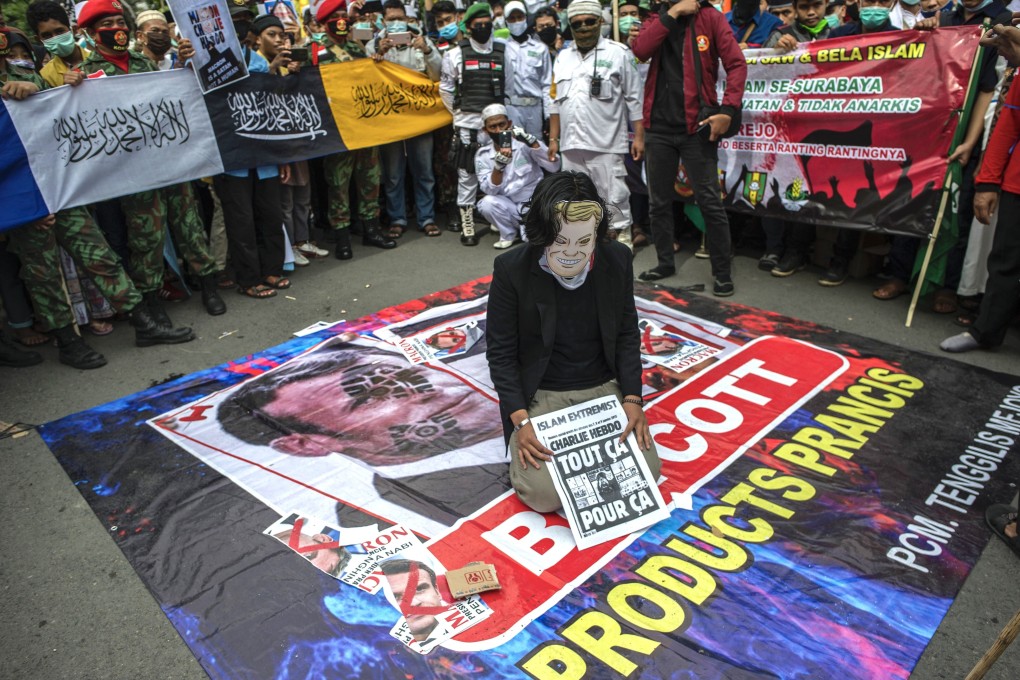Editorial | Don’t blame Islam for terror attacks
- Following heated reactions to atrocities in France and Austria, it is now time for moderation from all to avoid playing into the hands of deluded extremists

The two incidents revived horrific memories. As part of a lesson on free speech, the teacher had discussed with students political cartoons of the Prophet Mohammed, a blasphemy in the eyes of the faithful that led to the slaughter of 12 people at satirical magazine Charlie Hebdo in 2015. A year later 86 people died in Nice under a truck driven by a Muslim extremist on Bastille Day.
The Vienna attacks have established a pattern of extremist terrorism that is a wake-up call to the need for resolute action. Such acts should prompt closer international cooperation to neutralise and eliminate terrorism.
The French atrocities have exacerbated tensions between the strongly held values of a secular society and those of Islam. Some reactions from top French officials have been unhelpful. President Emmanuel Macron claimed that defamation of Islam – for example by the cartoons – is protected by freedom-of-expression laws. Other officials have been even more inflammatory, with Nice mayor Christian Estrosi speaking of “Islamo-fascism”.
It is time for restraint and moderation, especially in blasphemy. Arab commentators are right to say that just as it is a crime to try to justify the murder of innocent people in the name of religion, it is also wrong to link these crimes to Islam. “These terrorists don’t represent a religion followed by 1.5 billion people,” one commentary said.
The attacks in France are not about religion but about violence and terrorism. Macron and other officials should not link them to Islam. At the same time political leaders of Muslim countries should resist the temptation to respond with intemperate or provocative comment. Both play into the hands of extremists who crave legitimacy by association with religion and culture.
